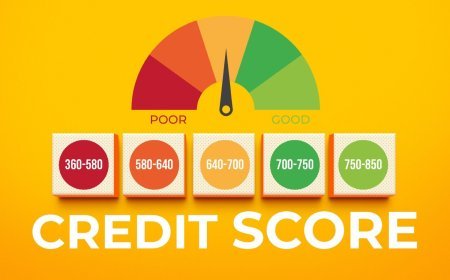Student Checking Accounts: Everything You Need to Know
Learn how student checking accounts work, their benefits, requirements, and how to choose the best account for your college financial needs.

Entering college marks a significant transition in financial independence, and choosing the right banking relationship can set the foundation for lifelong money management success. Student checking accounts represent specialized banking products designed to meet the unique needs of young adults navigating their first serious financial responsibilities while managing limited budgets and irregular income patterns.
These accounts recognize that students face distinct financial challenges compared to established adults. College students often have minimal credit history, irregular income from part-time jobs or family support, and limited experience with banking relationships. Student checking accounts address these realities by offering more forgiving terms and educational resources to help build financial literacy.
The Student Banking Landscape
Student checking accounts function similarly to regular checking accounts but with terms specifically tailored for young adults in educational settings. Banks design these products to attract future long-term customers while providing immediate value to students who might otherwise struggle with traditional account requirements.
The competitive landscape for student banking has intensified as financial institutions recognize the lifetime value of customers acquired during college years. This competition benefits students through improved terms, reduced fees, and enhanced educational resources that extend far beyond basic banking services.
Most student checking accounts require proof of enrollment in an accredited educational institution and maintain age restrictions, typically serving students between 17 and 24 years old. Some banks extend these benefits through graduate school or even into early career years, recognizing that financial challenges don't end immediately upon graduation.
Key Benefits and Features
The most significant advantage of student checking accounts lies in their fee structures. Many waive monthly maintenance fees entirely, recognizing that students often maintain lower balances than working adults. This fee forgiveness can save hundreds of dollars annually compared to standard checking accounts.
Minimum balance requirements are typically much lower or eliminated entirely, acknowledging the reality of student finances. This accessibility ensures that students can maintain banking relationships even during financially tight periods, such as between semesters or during unpaid internships.
Many student accounts include educational components designed to build financial literacy. These might include budgeting tools, financial planning resources, credit education programs, and even workshops on topics like student loan management and post-graduation financial planning.
Technology features often receive special attention in student accounts, with enhanced mobile banking capabilities, peer-to-peer payment systems, and integration with popular financial apps that students commonly use. These digital features reflect students' comfort with technology and their need for convenient, always-available banking services.
Eligibility and Documentation
Opening a student checking account requires proving your student status through documentation like current student ID cards, enrollment verification letters, or class schedules. Some banks accept high school enrollment, while others focus exclusively on college and university students.
Age requirements vary by institution, but most target the traditional college age range. Some banks offer extended student benefits for graduate students or recent graduates, recognizing that financial challenges may continue beyond undergraduate years.
The documentation process is generally straightforward, requiring standard banking materials like government-issued identification and Social Security numbers, plus the additional student verification. Initial deposit requirements are typically minimal, often ranging from $25 to $100.
Potential Limitations and Considerations
Student checking accounts aren't without limitations. The benefits are temporary, typically expiring when you reach a certain age or graduate from school. Understanding the transition timeline helps you prepare for eventual conversion to standard account terms.
Some student accounts may offer fewer premium features than standard accounts, such as lower ATM fee reimbursements or reduced customer service hours. However, these limitations often reflect the lower fees rather than inferior service quality.
Interest rates on student checking accounts are typically minimal, similar to standard checking accounts. If earning interest is important, you might need to complement your checking account with a separate savings product.
Choosing the Right Student Account
Selecting the best student checking account requires evaluating several factors beyond just fees. Consider the bank's ATM network, particularly near your campus and home locations. A large network can save significant money on ATM fees over your college years.
Mobile banking capabilities deserve special attention, as students often rely heavily on smartphone-based banking. Look for features like mobile check deposits, real-time account alerts, and intuitive app interfaces that make banking convenient between classes and activities.
Customer service accessibility matters, especially for students new to banking. Some institutions offer extended hours or specialized student support services that can be valuable when questions arise about account features or financial planning.
Consider the bank's broader relationship benefits. Some institutions offer preferential terms on student loans, credit cards, or other financial products that might become relevant during your college years or after graduation.
Building Financial Habits
Student checking accounts provide an excellent opportunity to develop healthy financial habits that will serve you throughout life. Regular account monitoring helps you understand your spending patterns and identify areas for improvement.
Setting up automatic transfers to savings, even in small amounts, establishes the habit of paying yourself first. Many student accounts integrate with savings products that can help you build emergency funds or save for specific goals.
Learning to use budgeting tools and financial planning resources while you're in school prepares you for more complex financial decisions after graduation. The educational components of student accounts can provide valuable learning opportunities beyond formal classroom instruction.
Planning for Post-Graduation Transition
Understanding how your student account will change after graduation helps you plan for the transition. Some banks automatically convert accounts when you reach age limits or graduation dates, while others require proactive communication to maintain favorable terms.
Building a strong relationship with your bank during college can provide advantages when you need post-graduation services like auto loans, mortgages, or business banking. Many institutions offer graduate programs that bridge the gap between student and full adult banking relationships.
Consider how your banking needs might change after graduation, including potential relocation, career-related banking requirements, and evolving financial goals. Choosing a bank with broad geographic presence or strong digital capabilities can provide continuity as your life circumstances change.
Student checking accounts represent more than just a place to store money—they're educational tools that can help establish lifelong financial success. By choosing wisely and using these accounts to build good habits, students can create a strong foundation for their financial futures while enjoying the immediate benefits of reduced fees and student-friendly terms.
What's Your Reaction?
 Like
0
Like
0
 Dislike
0
Dislike
0
 Love
0
Love
0
 Funny
0
Funny
0
 Angry
0
Angry
0
 Sad
0
Sad
0
 Wow
0
Wow
0









































